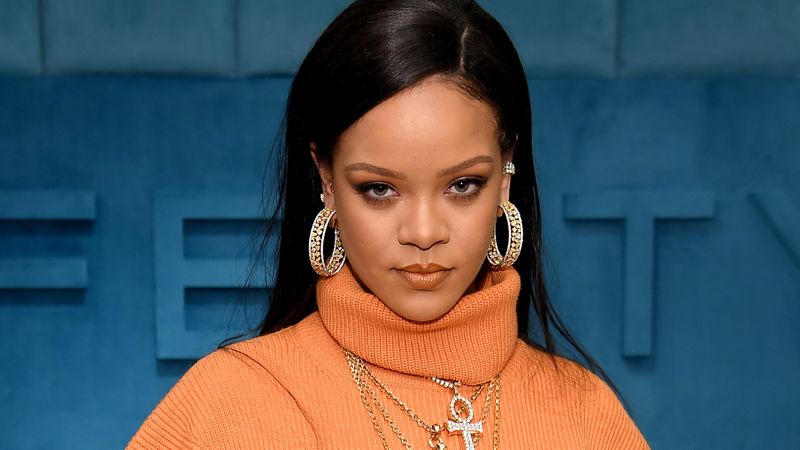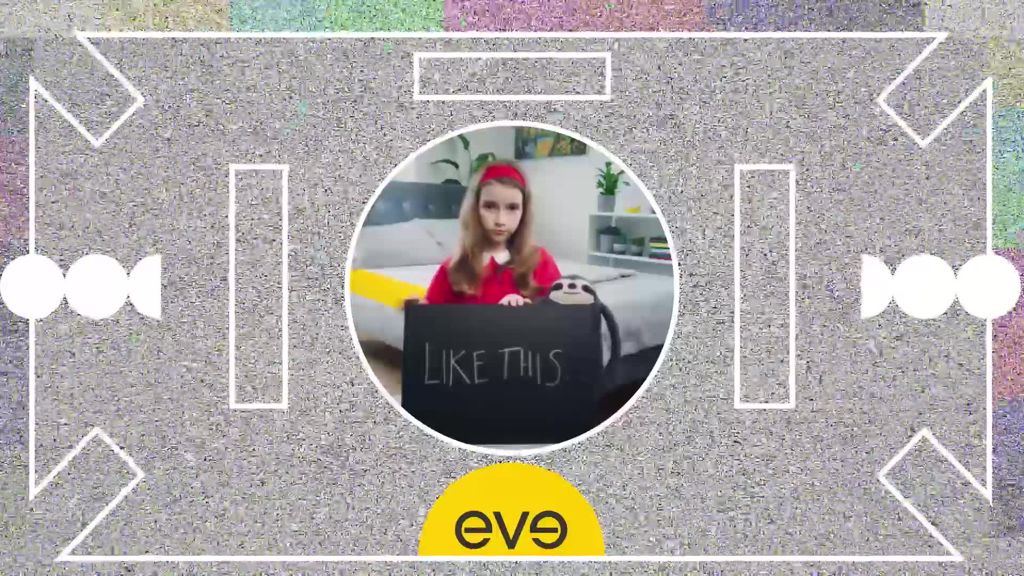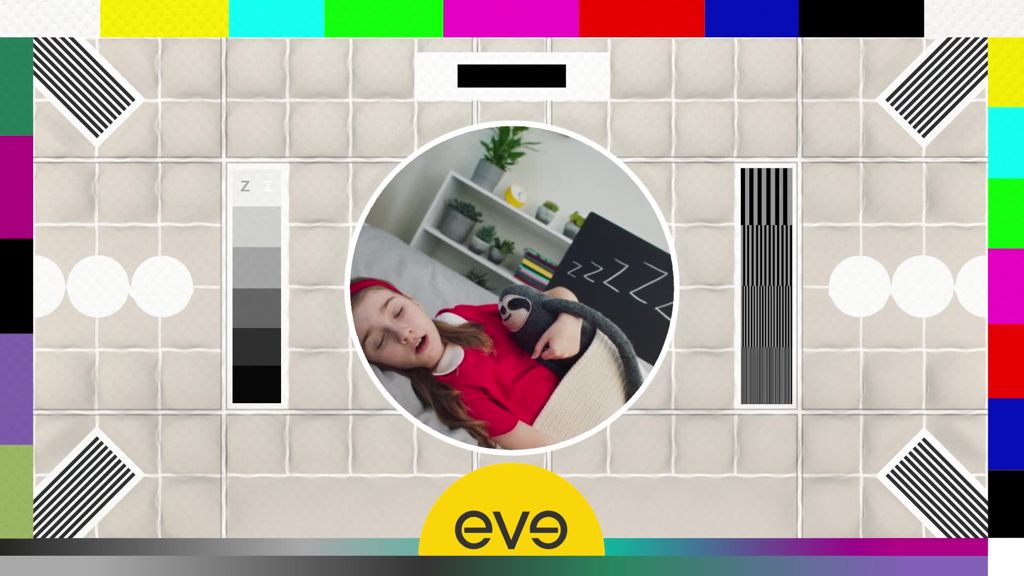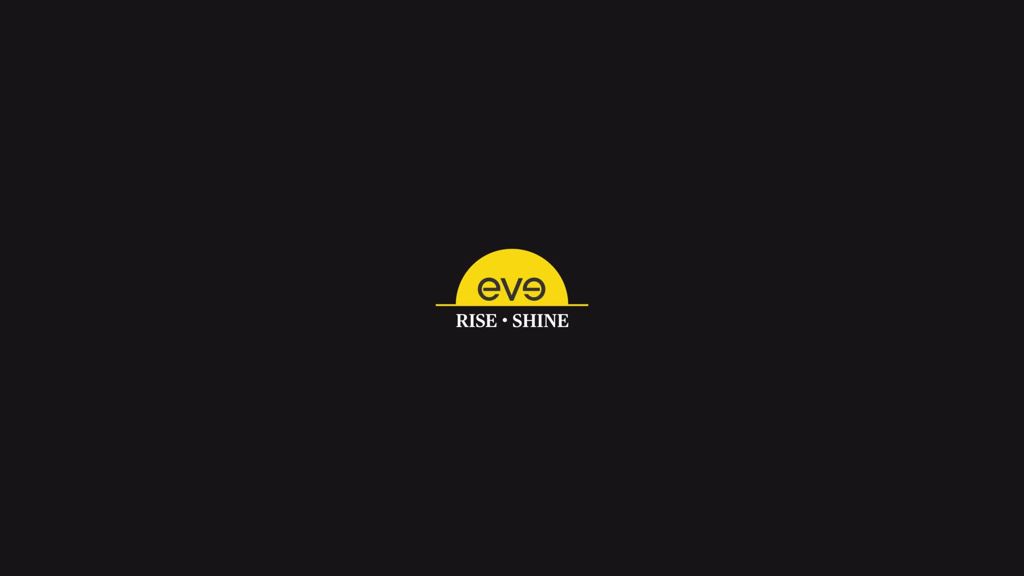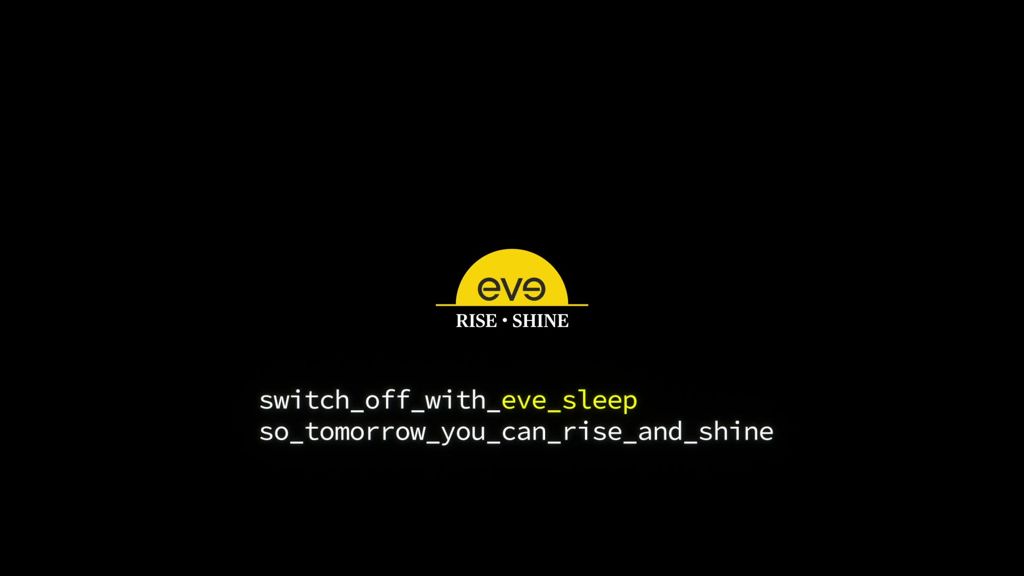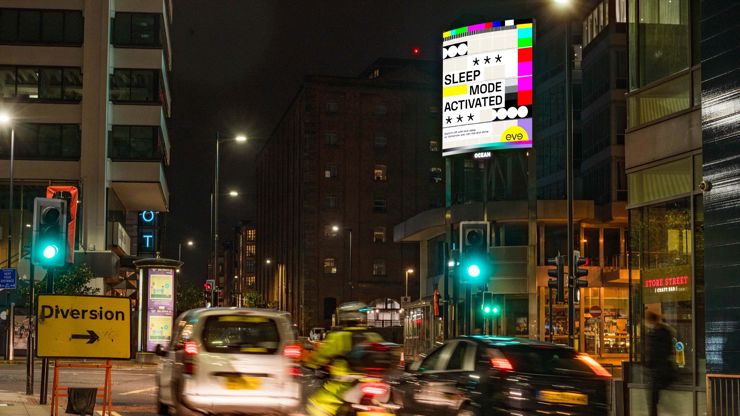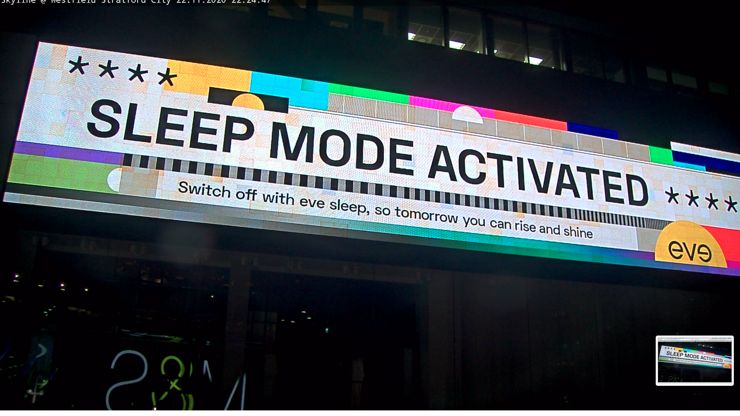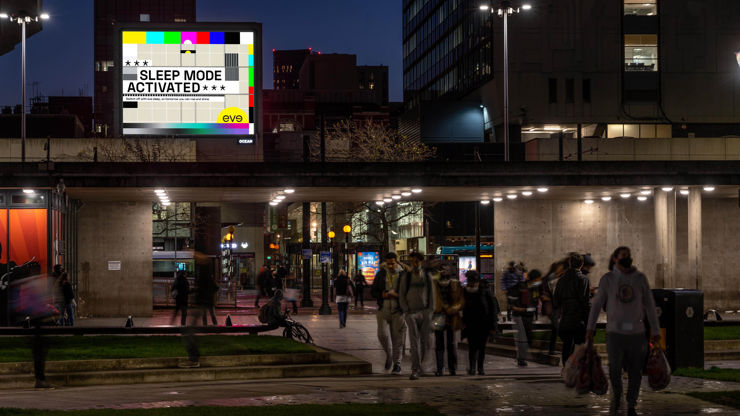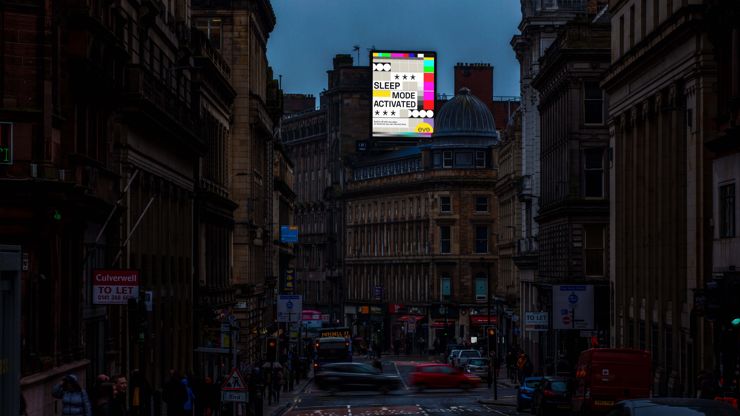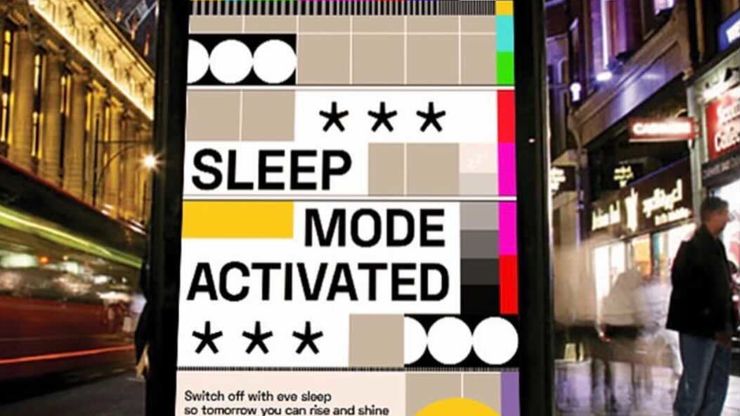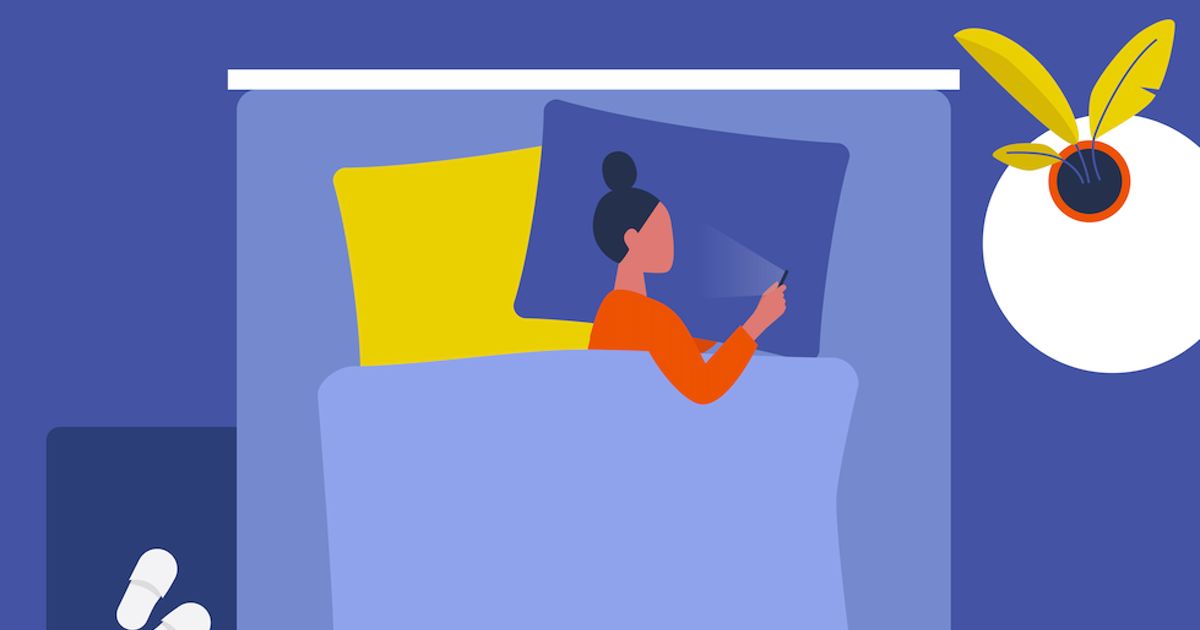Eve's bedtime stories
Reawakening the TV test card, Eve Sleep’s Switch Off promotion reminds us of those snoozy days when screens would cease and slumber would start. Andrew Gibson, Chief Strategy Officer of Creature London, the campaign’s creator, tells Carol Cooper about the brand’s mission to snuggle down deep into sleep wellness marketing.
Sleep loss kills. Not a cheery thought to ease you into sweet dreams, but the fact is most major first-world diseases – cancer, obesity, diabetes, hypertension – are linked to sleep deficit.
And since the pandemic, the number of Britons suffering worry-induced bad nights has risen from one in six to one in four. In the US, Google searches for ‘insomnia’ were up 58 per cent during the first lockdown of 2020.
Google searches for ‘insomnia’ were up 58 per cent during the first lockdown of 2020.
And most of those searches were conducted in the wee hours, peaking at around 3am, when surfers should have been snoring. The vicious circle is that while you’re sitting up in bed scrolling like a swivel-eyed loon, Googling ‘insomnia’ or ‘viral load’, your extended screen time is preventing you from switching off and your immunity is being compromised by lack of sleep, making you more vulnerable to viruses in the first place.
So, based on the brand’s own sleep survey confirming the recent rise of insomnia, Eve’s current campaign is a clever reminder that we need, more than ever, to get in quality zeds. And to this end, we need to shun our screens.
Credits
powered by
- Agency Creature of London/London
- Production Company Kode Media
- Director Locky
-
-
Unlock full credits and more with a Source + shots membership.
Credits
powered by
- Agency Creature of London/London
- Production Company Kode Media
- Director Locky
- Sound Grand Central Recording Studios
- Creative Director Ben Middleton
- Creative Director Megan Egan
- Producer Lew O'Brien
- DP Karl Poyzer
- Producer Anthony Taylor / (Producer)
- Sound Producer Molly Butcher
- Colorist Leandro Arouca
- Composer Si Hulbert
- Animation & Post Production Aivaras Seduika
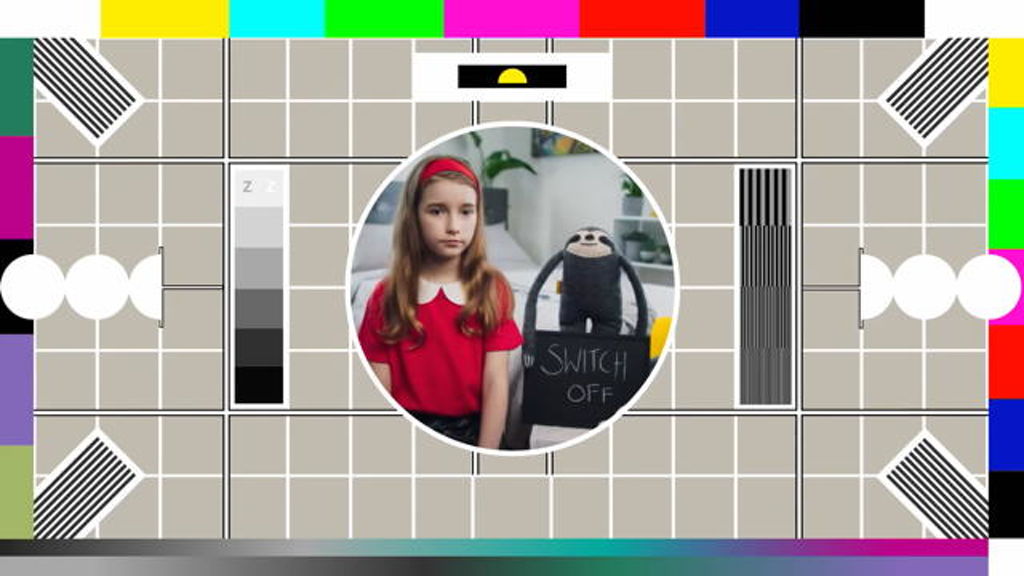
Credits
powered by
- Agency Creature of London/London
- Production Company Kode Media
- Director Locky
- Sound Grand Central Recording Studios
- Creative Director Ben Middleton
- Creative Director Megan Egan
- Producer Lew O'Brien
- DP Karl Poyzer
- Producer Anthony Taylor / (Producer)
- Sound Producer Molly Butcher
- Colorist Leandro Arouca
- Composer Si Hulbert
- Animation & Post Production Aivaras Seduika
Above: Creature's Switch Off campaign uses the old television test card to encourage viewers on Channel 4 to switch off and go to bed.
“If you read Netflix's mission statement, they say that their biggest enemy is sleep,” says Andrew Gibson, Chief Strategy Officer of Creature London. “There are all these factors keeping people up. I get a weekly screen time report from Apple. Every week it goes up. Switch Off is kind of a comment on that.”
Launched last November, the campaign features TV ads broadcasting on Channel 4 every Sunday through to April, at around 11pm, a time when most right-thinking folk should be turning in. The series of six spots feature Test Card F which, between 1967 and 1997, used to appear at the end of programming each night. But instead of a girl holding a rag doll, a similar girl is accompanied by the Eve mascot, a funky sloth that first appeared in ads in 2019.
If you read Netflix's mission statement, they say that their biggest enemy is sleep.
Led by Cheryl Calverley, the brand’s first CMO, the sloth Rise. Shine campaign, created by agency Arthur and Martha, was the start of the brand moving away from product function and towards what Calverley called “a sleep wellness business”. Featuring the long-armed critter dancing around on an Eve mattress to Moloko’s Pure Pleasure Seeker, the ad aimed to capture “the feel good positivity of having slept well”.
Then, in March 2020, to coincide with World Sleep Day, Eve and Channel 4 launched the Right To Sleep campaign, with the broadcaster overlaying ads with an amber ‘sleep mode’ filter – as used on mobile phones to counter over-stimulating blue light. The wider campaign included a petition to the UK government to recognise sleep under the Human Rights Act 1998, and a relaxing 90-second spot from Sassy Films that showed beautiful people, pets and babies sleeping soundly.
Eve – Quiet Night
Eve – Have A Lie Down
Eve – Blue Light
Eve – Sweet Dreams
Above: More from Creature's Switch Off campaign.
But Creature’s work has gone a step further than encouraging sleep, it boldly tells people to stop being sucked into today’s content overload. So how did Creature land the account? “I think probably what attracted Cheryl to us is that we have a history of being at the spikier end of advertising," says Gibson. "We do point-of-view-led campaigns.” He describes the company motto, ‘intelligent misbehaviour’, as “knowing the rules well enough to figure out where to break them in a way that is smart, rather than just whacky.”
We wanted to own a slightly higher category, to become a more meaningful brand that’s about the importance of sleep.
Gibson says Creature relished the chance to challenge the rather tired norms of mattress-in-a-box marketing, which hitherto had largely been about offering the longest sleep night trial. “We wanted to get out of that sort of race to the bottom where, ultimately, if you wanted to sleep on a mattress that you hadn't paid for for the rest of your life, you could just keep switching three times a year between 200 night trial guarantees. We wanted to own a slightly higher category, to become a more meaningful brand that’s about the importance of sleep.”
Founded in Shoreditch in 2011, Creature London’s work has ranged from immersive theatre experiences like Alice’s Adventures Underground, staged in the Vaults under London’s Waterloo Station, to Green Party political broadcasts such as 2016’s #GrownUpPolitics [below], which saw a cast of five year olds playing bickering mini ministers, complete with a bombastic Boris on a tricycle.
Credits
powered by
- Agency Creature of London/London
- Production Company SMUGGLER
- Director Neil Harris
-
-
Unlock full credits and more with a Source + shots membership.
Credits
powered by
- Agency Creature of London/London
- Production Company SMUGGLER
- Director Neil Harris
- CD Stuart Outhwaite
- CD Ed Warren
- CD Ben Middleton
- Creative Tori Fannon
- Producer Madeline Smith / UK
- Producer Amy Connery
- Producer Nicola Ridley
- Account Manager Jane Stephenson
- Creative Lydia Raghavan
- Strategist Rosie Harrison
- Account Management Emily Brownlow
- Editor Saam Hodivala
- Online & Audio Ross Culligan
- Producer Adam Evans
- DP Sveere Sordal
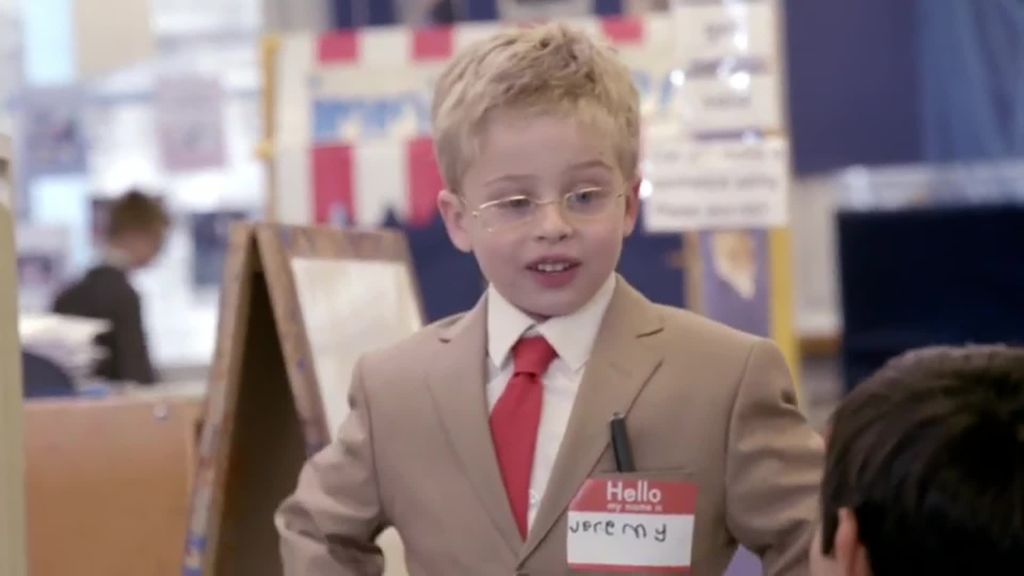
Credits
powered by
- Agency Creature of London/London
- Production Company SMUGGLER
- Director Neil Harris
- CD Stuart Outhwaite
- CD Ed Warren
- CD Ben Middleton
- Creative Tori Fannon
- Producer Madeline Smith / UK
- Producer Amy Connery
- Producer Nicola Ridley
- Account Manager Jane Stephenson
- Creative Lydia Raghavan
- Strategist Rosie Harrison
- Account Management Emily Brownlow
- Editor Saam Hodivala
- Online & Audio Ross Culligan
- Producer Adam Evans
- DP Sveere Sordal
Above: Creature's campaign for the UK's Green Party.
Such ‘outside the box’ thinking has proved a good fit for moving beyond mattress-in-a-box thinking, resulting in a campaign for Eve that is cheekily contradictory – it comprises compelling content, while the central message is anti-content. The six Test Card TV ads include advice about ignoring TV streaming service’s countdown to the next episode. The campaign has even executed a takeover of online gaming with unskippable minute-long ads popping up in apps, including Candy Crush, Pet Rescue and Farm Heroes, advising that it’s probably time to stop playing and get some kip now.
The call to action is to go to bed, therefore, where you'd usually be sending people to evesleep.co.uk, actually you want them to go sleep.
Gibson is understandably proud of these. So how on earth do you persuade a gaming brand to tell consumers to stop gaming? “It’s not the sexiest story, but the gaming people didn't seem very bothered by it,” he admits, saying it was harder to persuade Channel 4 to ask viewers to turn off the TV. He thinks the gaming brands were relaxed as they knew people would be returning to their games at some point anyway, but he also feels it’s a relatively underused platform; “I think, because generally nobody does anything good in that media space, they were interested in having high quality creative.”
There is also an outdoor element, with digital billboards in major city centres powering down into ‘sleep-mode’ every Sunday night between 10pm and 11pm, reminding people when they get home they should get straight off to bed. Gibson reports a massive spike in traffic to the Eve Sleep website on a Monday morning, clearly a result of the Sunday night activations. “The campaign is unique, because the call to action is to go to bed, therefore, where you'd usually be sending people to evesleep.co.uk, actually you don't want them to go to the website, you want them to go sleep.”
Above: Eve's outdoor campaign powers down into ‘sleep-mode’ every Sunday night.
They also have social media elements that target people the next day who may have seen the Sunday night spots, offering useful sleep quizzes and dream analysis. “If someone does the quiz and says they had trouble getting to sleep, they’ll be sent some kind of ASMR or meditative content. If they had nightmares, there is dream analysis or tips on relaxing scented spray etc. The more we can get people thinking about sleep, and using Eve to do this, then we are happy to be giving away quite valuable content.” Staying true to its message however, the site’s homepage does close down on Sunday nights.
Switch Off’s gentle admonishment of our addiction to screens, along with the test card girl’s bossiness, give the whole campaign a distinctly nannying tone. But maybe nannies are just what we need right now? We’ve had a year of fear, of daily death toll check-ins, western governments have dissolved into an omnishambles of nonsensical instructions, of mask mayhem and ever expanding/contracting bubbles. Perhaps we’ve collectively become slightly infantilised by feeling vulnerable, either clinically or emotionally. Sales of weighted sleep blankets are booming; is that just modern-day swaddling for adults? Maybe a clear, parental directive to ‘get along to bed now’ is comforting.
Wellness has never been more important. It’s not just about having shinier hair, feeling more perky or less bloated, this is about wellness as in not being dead.
“It's interesting,” muses Gibson, “I think being told what to do by a child is sort of the inherent joke in the ad. But it could be that people are fed up with being told what they can or cannot do and we're sort of making a joke about that. Maybe people can take both of those things from the campaign. ‘I'm willing to be told what to do, yeah. But also, I sort of recognise that this is a joke’.”
Wellness brands, particularly in the nutrition sector, thrive on confusion. Should your fats be saturated or trans? Is your cholesterol good or bad? Is that costly cocktail of vitamins you’ve just gagged on with a gulp of fermented yeast tea helping you or just giving you luminous wee? But along with contradictory Covid rules, the science of this capricious and indiscriminate mutating virus has caused an epidemic of confusion. Wellness has never been more important. It’s not just about having shinier hair, feeling more perky or less bloated, this is about wellness as in not being dead.
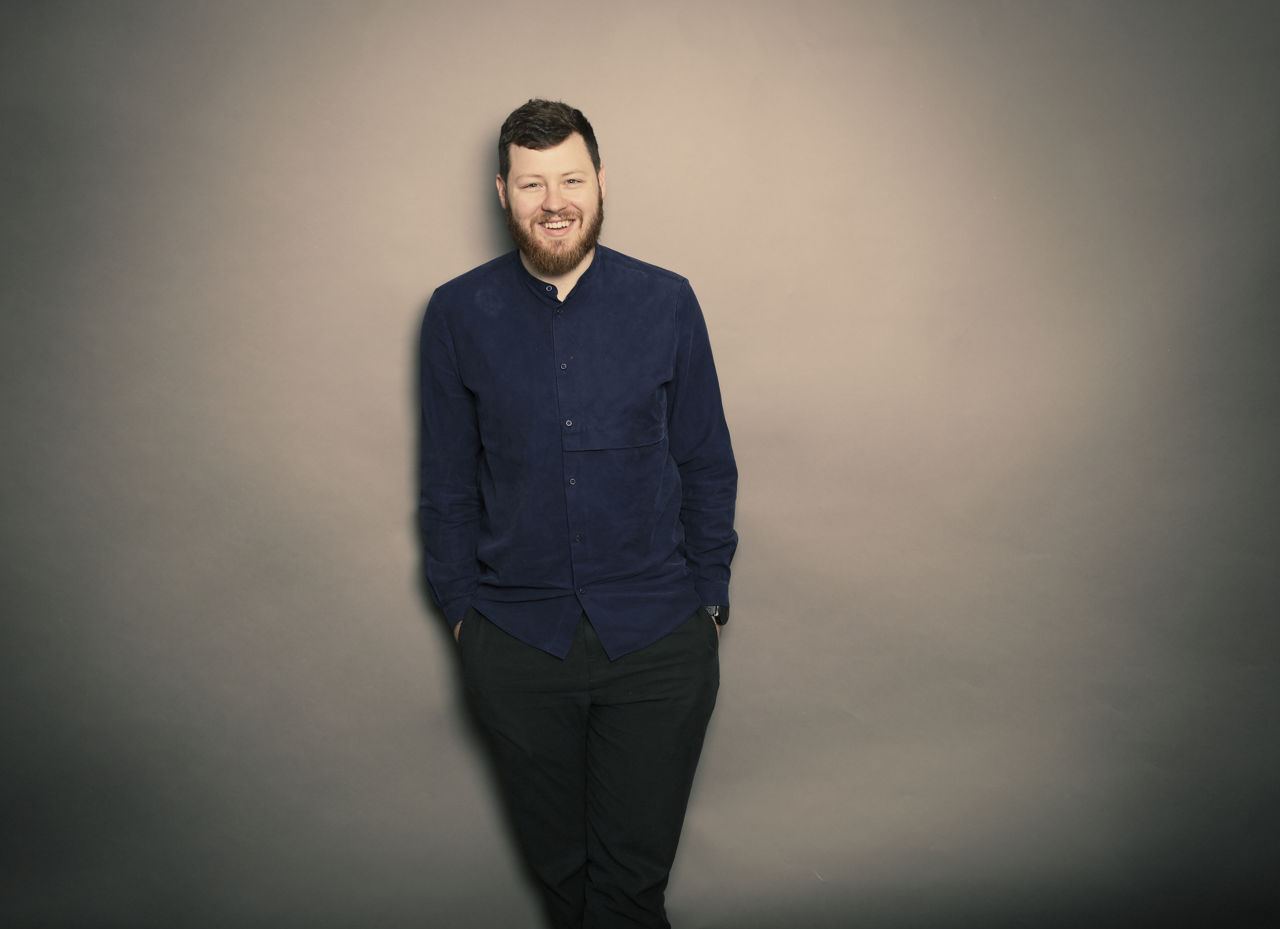
Above: Andrew Gibson, Creature London's Chief Strategy Officer.
Amid this uncertainty, health brand sales have soared, particularly immunity related products, the Pure Green juice franchise, for example, saw a 1,000 per cent increase in sales of its Ginger Immunity Shot. Brands clearly face a challenge in not appearing to be predatory or capitalising on a crisis – the ad industry, too, should avoid rubbing its hands in glee. Last autumn, a large agency network produced a report that cynically stated; “The wellness economy offers some of the most exciting growth prospects in consumer goods marketing, and Covid-19 will only accelerate this phenomenon.”
I wonder if the danger with the word 'wellness' is you can call anything wellness.
Given that sleep is probably the best immunity booster of all, Eve’s ‘go to bed’ directive is clearly, genuinely helpful, but how does Gibson see brand’s responsibilities? “It's a fine balance between profiteering, capitalising on people's vulnerabilities or worries, and serving them with what they need at that moment. I agree, the more you claim ‘this boosts your immunity’ or ‘this spray kills 99 per cent of Covid’, people can get suspicious.”
Eve noticed the first pandemic-related sales spike was in mattress toppers; maybe couples taking to sleeping separately were noticing they had ropey spare beds. “I guess the approach Eve has taken is to try and be as useful to people as possible. And ultimately, the sales will come.” Prior to the pandemic, global warming was the hot topic, with some brands being accused of jumping on wind-powered bandwagons and ‘greenwashing’ their messaging. Has Gibson noticed many brands indulging in wellness-washing? “I wonder if the danger with the word 'wellness' is you can call anything wellness. Chocolate can be wellness, if it’s improving your mental state…”
Ultimately, it seems the key to hitting the right note is to not purport to be overly caring, which consumers can detect as disingenuous, but to stick to a promise. “This creates a slightly more transparent relationship between the brand and the consumer,” says Gibson. “Brands have become obsessed with lofty ambitions that become untethered to the actual products. They collect more and more points of meaning saying ‘we've got a vision, we've got a mission, we've got a north star’. But these can become increasingly removed from the thing that’s actually being sold, or the reason someone might buy that thing.”
[A brand purpose is] a bit like a hot-air balloon, it'll go where the wind takes it. And if you don't tie it down with a promise, then you'll just end up with it floating around meaninglessly.
He admits lofty ambitions can work well for a few brands, citing Patagonia as a good example. But claims one of the most helpful things you can have is a promise, which is distinct from purpose. “It’s basically, if you buy this thing, or engage with us, what are we promising you in return? I think a purpose can sometimes be great, but it's a bit like a hot-air balloon, it'll go where the wind takes it. And if you don't tie it down with a promise, then you'll just end up with it floating around meaninglessly. With Eve, its purpose is to be a sleep wellness brand. But its promise is to help you sleep better.”
A comforting thought. Now stop scrolling and have a nap.
)

